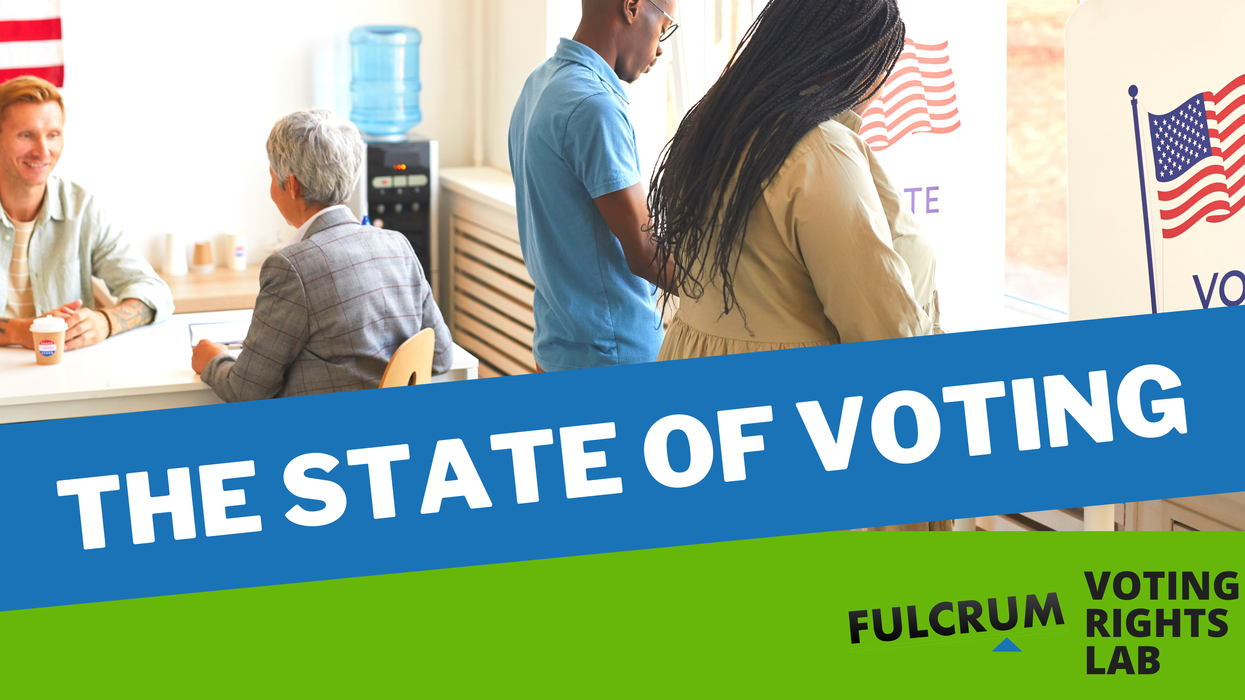This weekly update summarizing legislative activity affecting voting and elections is powered by the Voting Rights Lab. Sign up for VRL’s weekly newsletter here.
The Voting Rights Lab is tracking 2,151 bills so far this session, with 575 bills that tighten the rules governing voter access or election administration and 1,027 bills that expand the rules.
Last week, Maryland Gov. Larry Hogan vetoed a bill that would have given mail voters an opportunity to correct an error that may prevent their ballot from counting. The bill would have provided election officials more time to review and count mail ballots.
Meanwhile, the Rhode Island General Assembly passed a bill creating no-excuse mail voting, sending it to Gov. Daniel McKee for his signature. And bills that would have severely restricted drop boxes and essentially banned emergency vote centers both failed to pass the Arizona Senate. Additionally, Gov. Doug Ducey vetoed a "voter purge" bill that lacked safeguards to prevent the improper removal of eligible voters, and the Legislature passed a bill to give mail voters the choice to bypass the signature verification requirement by showing ID when they return their mail ballot.
Here are the details:
Rhode Island passes legislation creating no-excuse mail voting. Legislation creating no-excuse mail voting in Rhode Island passed the Senate last week and is eligible for the governor’s signature. While most states allow all voters to vote by mail, Rhode Island is currently one of the 17 states where voters still need a special reason, or “excuse,” to get a mail ballot. In addition to creating no-excuse mail voting, this bill also ensures that voters have access to 24-hour secure drop boxes to return their ballots.
In Arizona, bills that would have severely restricted drop boxes, created problematic voter purges and prohibited emergency vote centers all fail to become law. Last week a bill that would have severely restricted the availability and accessibility of drop boxes failed the Senate. The bill would have prohibited drop boxes unless they were continually monitored by election staff or video monitoring. Opponents argued that these restrictions would be cost-prohibitive and threaten to eliminate drop boxes in many areas, particularly on tribal lands. Legislation that would have effectively banned emergency vote centers also failed the Senate.
On Friday evening, Ducey vetoed a problematic voter purge bill that landed on his desk after passing the Senate last week. The bill would have required state and local officials to use the drivers license file and other incomplete federal databases to identify and remove voters due to a change of address or non-citizenship. Ducey’s veto letter cited concerns about vagueness and the lack of safeguards to prevent lawfully registered citizens from being removed.
Meanwhile, the Arizona House passed S.B. 1362, which would allow mail voters to bypass the signature verification requirement if they return their mail ballot to their polling place, show ID and insert the ballot directly into a tabulator. That bill is now eligible for the governor’s signature.
Maryland's governor vetoes strong cure legislation. Hogan vetoed S.B. 163, which would have created a cure process to allow mail voters to fix possible errors on their ballot to avoid having their ballot rejected. The bill would have also allowed boards of elections to verify mail ballots earlier than currently allowed under state law. In his veto message, the governor praised these provisions, but explained that he was vetoing the bill because it did not impose signature matching as a ballot validation tactic and “did nothing to address ballot collecting.” Under current regulations, Maryland voters do have some ability to cure mistakes with their mail ballots, but only due to a skeletal, non-statutory process through the State Board of Elections.




















